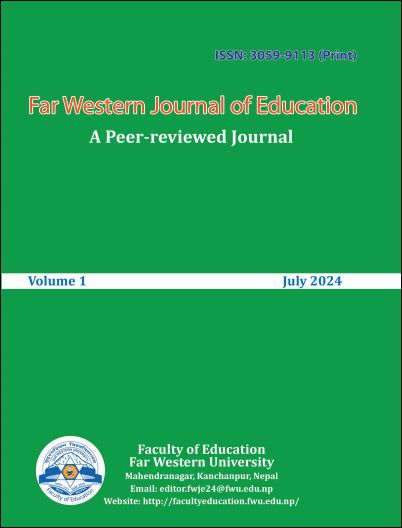The Role of Artificial Intelligence in Psychology
DOI:
https://doi.org/10.3126/fwje.v1i1.68775Keywords:
Artificial intelligence, role, cognition, ethicsAbstract
Psychology has always been fascinated by the human mind, which is incredibly complex and elusive. However, its depths are still mostly unknown, and the scant information and arbitrary interpretations impede our comprehension. Today, artificial intelligence (AI) is a potent force that promises to shed light on these hidden intricacies. Massive amounts of data, such as speech patterns, facial expressions, and even physiological markers, may be analyzed with remarkable objectivity and precision by AI-powered algorithms. For those who are unable to access traditional treatment due to social or geographic constraints, AI-powered chatbots, and virtual therapists can provide round-the-clock support and guidance. The AI models, which mimic human perception, learning, memory, and decision-making, provide important insights into the complex mechanisms underlying the brain. This in-depth knowledge is essential for creating interventions and preventative strategies that are more successful for a wide range of mental health issues. To ensure appropriate and ethical deployment, it is imperative to strike a balance between the advantages of artificial intelligence and the indispensable warmth of human connection. The methodology comprised a comprehensive review of the literature on artificial intelligence applications in psychology, which includes books, reputable blogs, journals, newspaper articles, and articles. There is no denying its capacity to completely transform medical diagnosis, treatment, and our comprehension of the human mind. This research article tries to explore the many applications of AI in psychology and how it can transform our basic knowledge of the human psyche.
Downloads
Downloads
Published
How to Cite
Issue
Section
License
Copyright (c) 2024 The Author(s)

This work is licensed under a Creative Commons Attribution-NonCommercial 4.0 International License.
This license enables reusers to distribute, remix, adapt, and build upon the material in any medium or format for noncommercial purposes only, and only so long as attribution is given to the creator.




